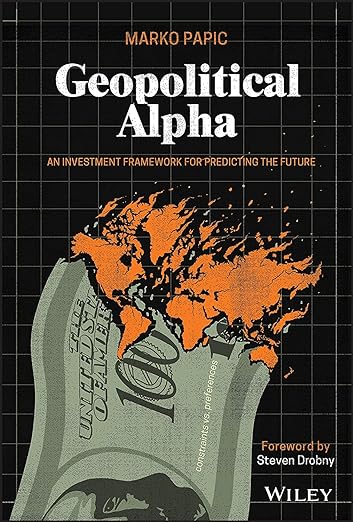Geopolitical Alpha - Marko Papic
In Geopolitical Alpha, Papic lays out his framework for predicting geopolitical events. He calls this a constraint-based framework. He argues that investment professionals rarely pay much attention to geopolitical events, and when they do, their opinions closely align with the media-driven narrative. This media-driven narrative generally focuses on individual actors’ preferences. In other words, Boris Johson states that “he’d “rather be dead in a ditch” than ask for a Brexit delay from the EU” and then the prevailing narrative is a no-deal Brexit is the most likely outcome.
Papic counters this “preference” driven approach with his constraint-based framework. He argues that all political leaders are subject to practical constraints that supersede their preferences. The preferences are subject to these constraints, but the constraints are not subject to the actor’s preferences, so when the constraints clash with preferences, you should bet on the constraints.
He then goes on to identify 5 distinct constraints:
- The political environment
- Current economic conditions
- Geopolitical realities
- Constitutional and legal
- Time
Papic describes these constraints in detail and provides several backward looking examples to bolster his claim.
The arguments Papic seem sound enough to almost be banal – of course political leaders are subject to constraints that should be analyzed instead of just their stated preferences. The point of contention is what those constraints are and when they clash with preferences. Papic’s work is full of backward looking stories carefully curated to fit his specifically chosen constraints, but is lacking any explicit forward-looking forecasts. Additionally, there is no back-testing of this framework to test across environments.
Rating: 4/5
Although Papic makes few explicit predictions and his arguments seem riddled with hindsight bias, this book got me thinking about how to best incorporate geopolitical information into an investing framework. And there aren’t many other books that tackle this topic.
